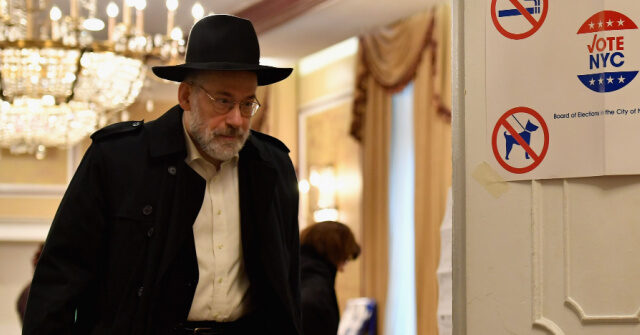Former President Donald Trump has made significant inroads with Jewish voters in New York, achieving a historic 43% support rate, according to recent polling data. This marks a substantial increase from his previous performance in 2020 and indicates a potential shift in the political landscape as he prepares to run against Vice President Kamala Harris in the 2024 election. Traditionally, the Jewish electorate has heavily leaned toward Democratic candidates, making this surge in support for Trump notable and worthy of close examination.
The Fox News exit poll revealing Trump’s support among Jewish voters illustrates a remarkable shift, with more than four in ten Jewish New Yorkers now favoring him. Such unprecedented levels of support signify a break from the norm for Republican candidates who have traditionally struggled to gain traction in this demographic. This shift does not only reflect changing voter attitudes but also suggests that Trump’s policies on issues pertinent to the Jewish community, including his stance on antisemitism, U.S.-Israel relations, and religious freedoms, have begun to resonate more powerfully among voters, especially within Orthodox communities.
Notably, the rise in Trump’s appeal among Jewish voters illustrates a growing conservative trend within this segment of the electorate. This change is particularly significant in key swing states that contain substantial Jewish populations, as it could influence election outcomes. Analysts have drawn comparisons to historical voting patterns, with David Hirsch noting that the last time a Republican candidate achieved over 40% support from Jewish voters was in the 1920 election, underscoring the historic nature of Trump’s current standing. Observers are noting the implications of these shifts as they may signal a transformational moment for Republican outreach to the Jewish community.
A driving factor behind Trump’s increased support may be the alarming rise in antisemitism within New York, which has seen a rise in hate crimes targeting Jewish individuals and communities. This surge could be motivating voters to reconsider their allegiances, historically held by Democratic candidates like Joe Biden, who enjoyed overwhelming support in the 2020 election. If these trends persist, they could drastically reshape the political landscape and voter loyalties ahead of the upcoming election, especially in tightly contested races that can turn on a few key demographic shifts.
The historical context of Jewish voting behavior also suggests that Trump’s ascent is indicative of broader changes in American politics. While the Jewish community has traditionally aligned with Democrats largely due to issues like civil rights, it appears that Trump’s focus on specific issues that resonate with this electorate is attracting new support. With the current political climate emphasizing divisive issues and heightened concerns over domestic safety and international relations, Trump’s messaging appears to address key concerns among Jewish voters, pushing the needle toward increased Republican support.
As the 2024 election approaches, the implications of these shifting dynamics within the Jewish voter base could be profound. Should this trend continue, it will not only redefine the expectations for Trump’s campaign but also challenge the longstanding narrative that Jewish voters are firmly entrenched in the Democratic camp. With the potential to influence critical battleground states, Trump’s growing support among Jewish voters may ultimately prove to be a vital element in the electoral landscape, shaping not only his campaign strategies but also the Democratic Party’s approach to this significant constituency.

